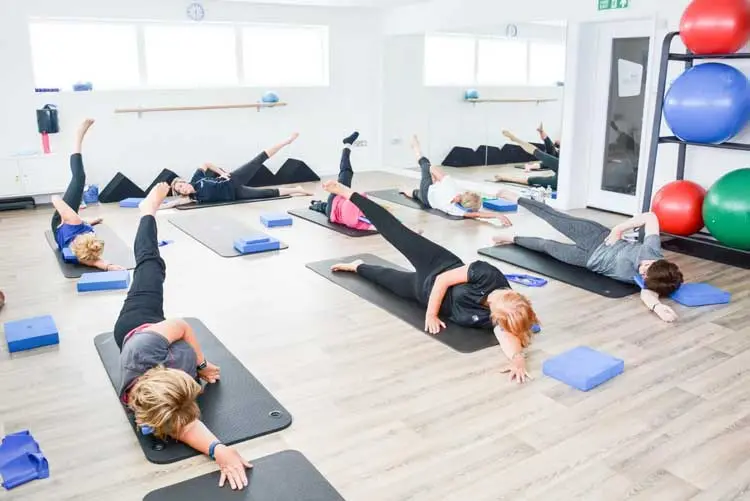I read an interesting article this weekend in The Times. It’s behind a paywall, so I’ve summarised my thoughts and put a few highlights in this blog as I reflect on the important points it highlights.
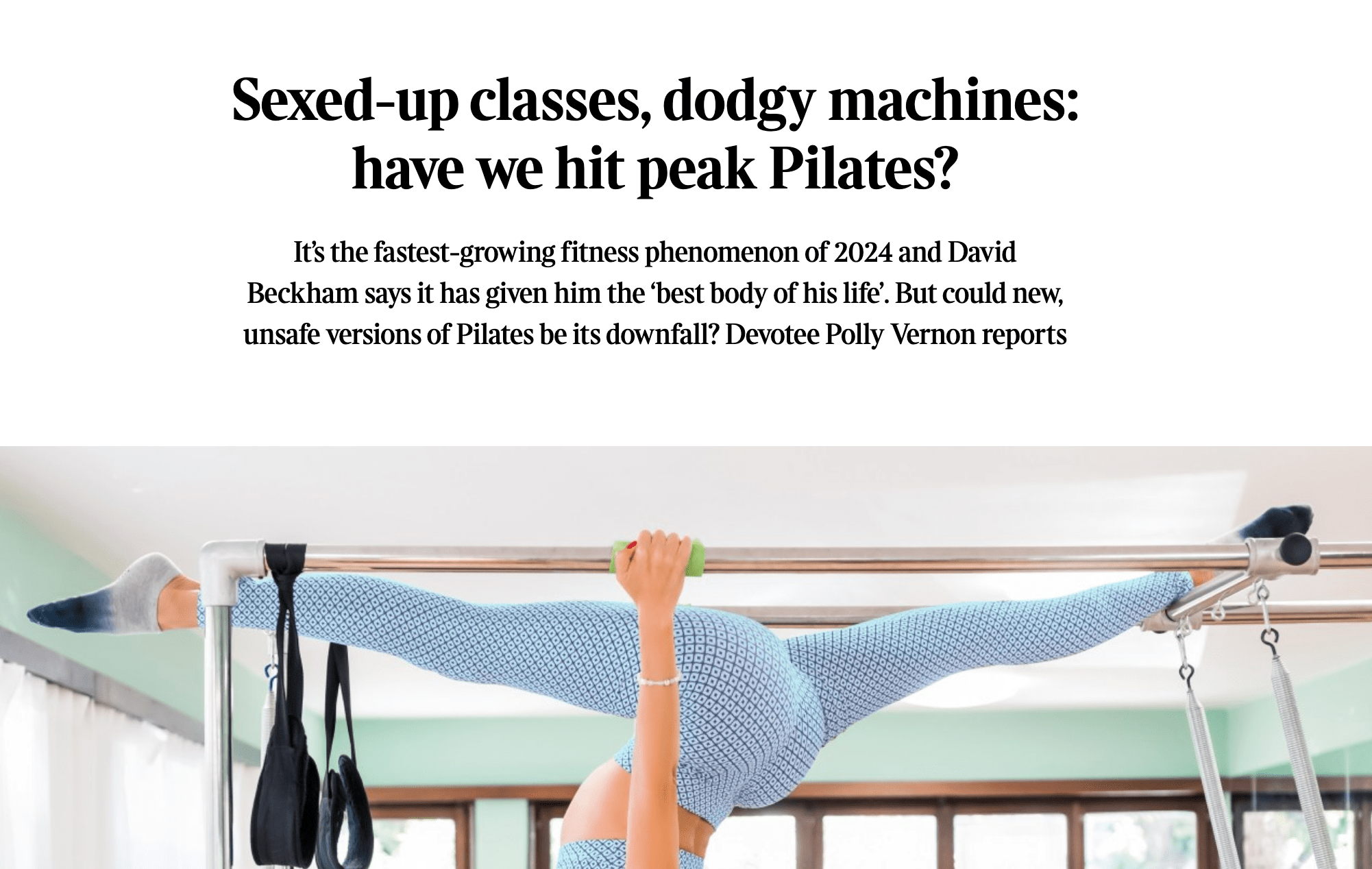
The Rise of Modern Pilates Studios
Pilates, once a niche form of exercise and used for rehabilitation and injury recovery, has skyrocketed in popularity, becoming a major fitness trend in 2024. With endorsements from celebrities like David Beckham, ‘Pilates’ has morphed into various high-intensity, aesthetically driven classes offered by new studios popping up al over the place. These trendy studios aim to cater to the millennial market with flashy branding and club-like atmospheres, often emphasising a “sexier” and more modern approach to Pilates.
Classes are often branded as Pilates inspired, or Pilates Infused – basically using some Pilates principles but pimped up in a different way. The trouble is, if you are looking for a ‘Pilates class’ as a customer, you really don’t know what you’re signing up to and here in lays the issue.
Deviations from Traditional Pilates
Traditional Pilates, developed by Joseph Pilates during World War I, focuses on precise, controlled movements designed to strengthen core postural muscles and support the spine. However, many new studios have deviated significantly from these principles, offering classes that prioritise intensity and aesthetics over safety and proper technique. These variations often involve unfamiliar and sometimes flimsy reformer machines, loud music, and poorly trained instructors, leading to a diluted and potentially dangerous form of Pilates. There is no regulation for Pilates Instructors, some just do an hour or a day in house training.
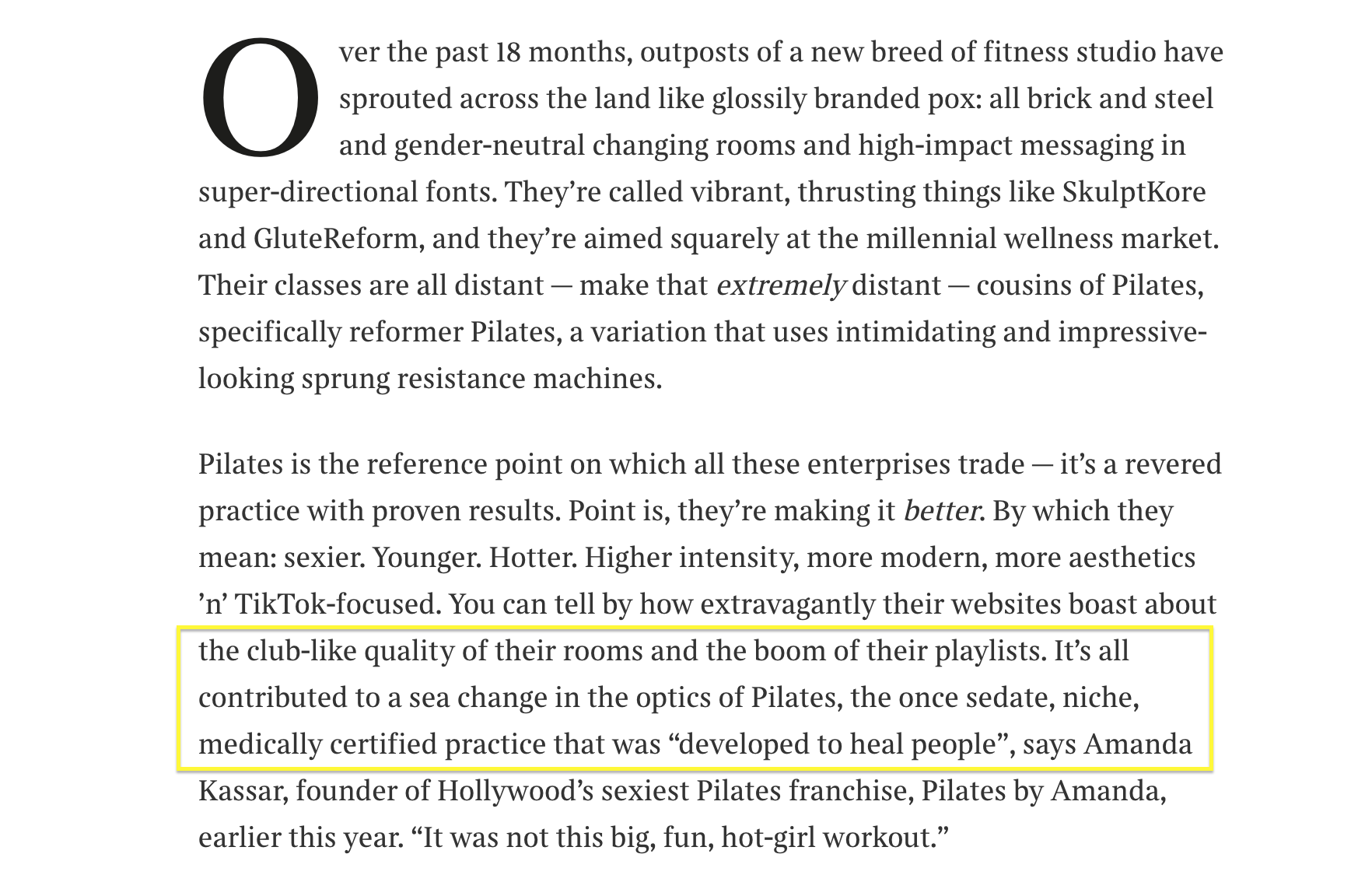
Risks and Injuries
The surge in popularity has not come without consequences. Reports of injuries are becoming more frequent, with participants experiencing falls, fractures, and other accidents due to improper equipment and insufficient instructor training. Studios often employ personal trainers who have received minimal Pilates-specific training, resulting in classes that fail to accommodate individual needs or injuries. This has led to instances where exercises intended to be rehabilitative exacerbate conditions, highlighting the urgent need for regulation and standardised training in the industry.
Currently, there is a lack of clear definitions and enforceable guidelines, leading to a wide range of practices being marketed under the Pilates umbrella. This inconsistency not only undermines the practice’s effectiveness but also poses significant risks to participants.
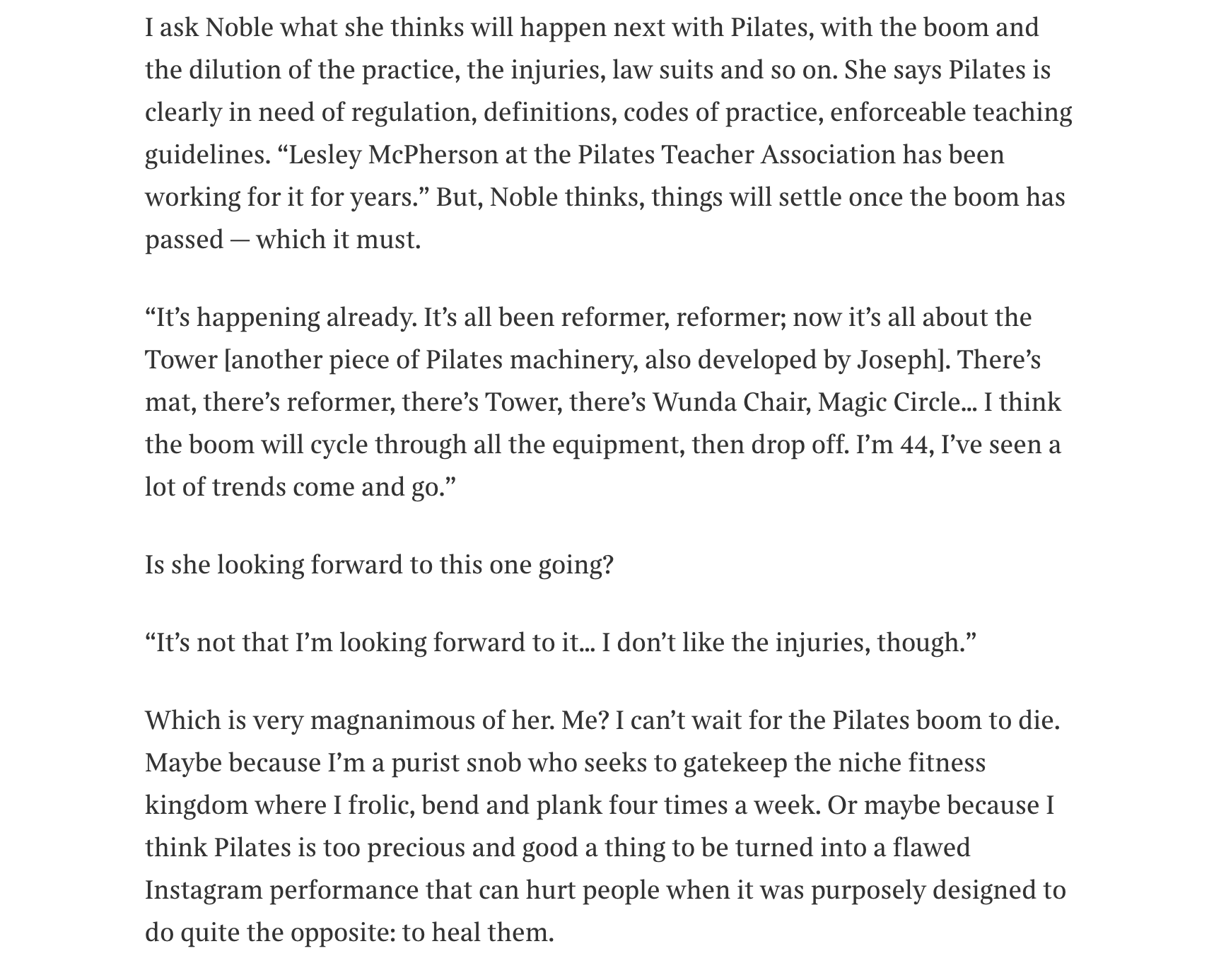
Conclusion
The unregulated boom in Pilates classes has transformed a once-healing practice into a potential hazard. While the increased interest in Pilates can be seen as a positive trend, the industry must address the dangers posed by poorly trained instructors and substandard equipment. Implementing rigorous training standards and clear regulations is essential to preserve the safety and effectiveness of Pilates, ensuring it remains a beneficial practice for all. Until such measures are in place, participants should exercise caution and seek out studios that adhere to traditional, well-established Pilates principles.
How we Work at goPhysio
Here at goPhysio, you’ll only find the highest standards of Pilates.
- All our Instructors are also part of our Clinical Team, so are in the clinic throughout the week helping our community with their aches, pains and injuries. If they think Pilates might help your recovery & rehab, you get that seamless, consistent care.
- All our Instructors are also degree trained Physiotherapists or Sports & Rehabilitation Therapists. This means they are experts in the human body, how it works, how it moves, how it can be impacted by injuries and how to get the most from Pilates.
- All our Instructors are trained with the APPI. The APPI Clinical Pilates teacher training series is one of the worlds most widely used rehabilitation programs. Because our team are trained in the same method of Pilates, we all work together cohesively and consistently to make sure you get the most from Pilates.
- The whole team get together regularly, for training, development, support and seeking ways to continually improve and develop what we offer and how. We shadow each other, learn from each other and regularly attend training courses to improve our knowledge.
- You’ll never find more than 9 people in our mat classes and 5 in our Reformer classes – that way you get individual attention that makes sure we can focus on quality of movement – absolutely key for Pilates.
- Before you join classes at goPhysio, we always insist on individual inductions. This ensures we know Pilates is right for you, we can tailor your sessions for you, teaches you the basics on an individual basis so that you get the most from classes and ultimately ensures you are safe.
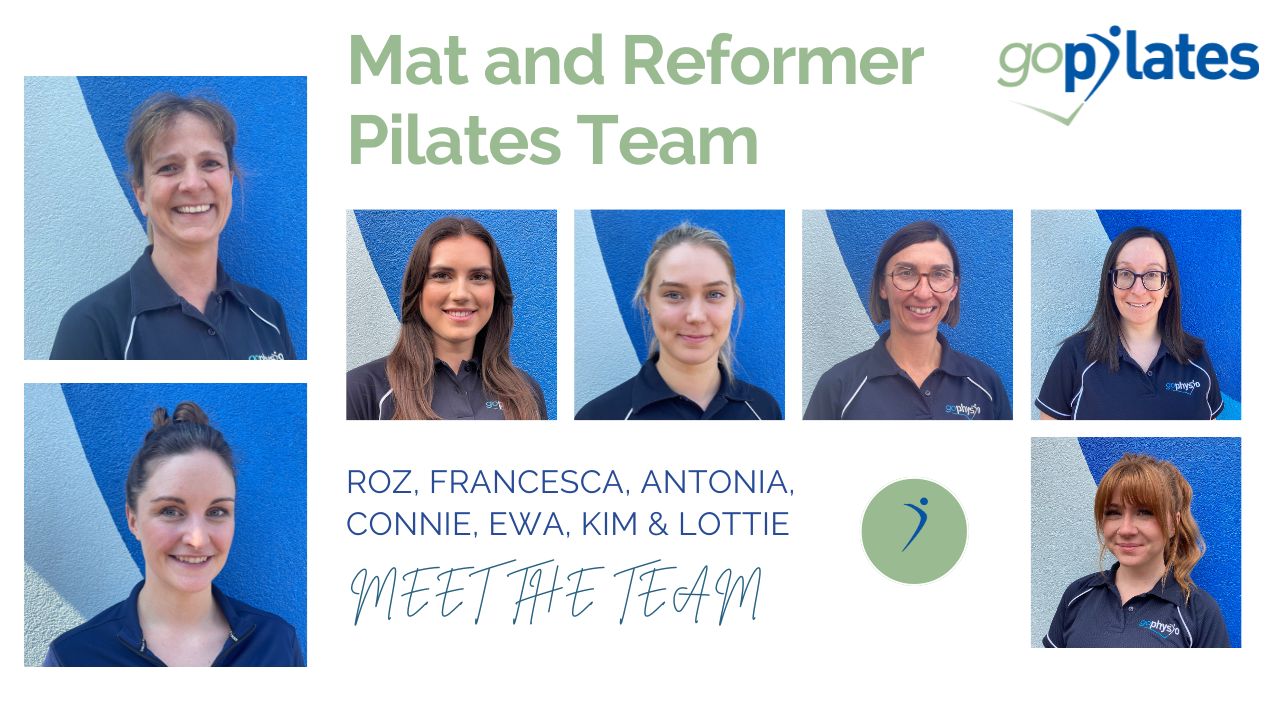
If you’d like to find our more about Pilates in Chandlers Ford at goPhysio, we’d love to hear from you. We have a range of options for Mat and Reformer Pilates, 1-2-1s and small group sessions throughout the week. Read more here.



